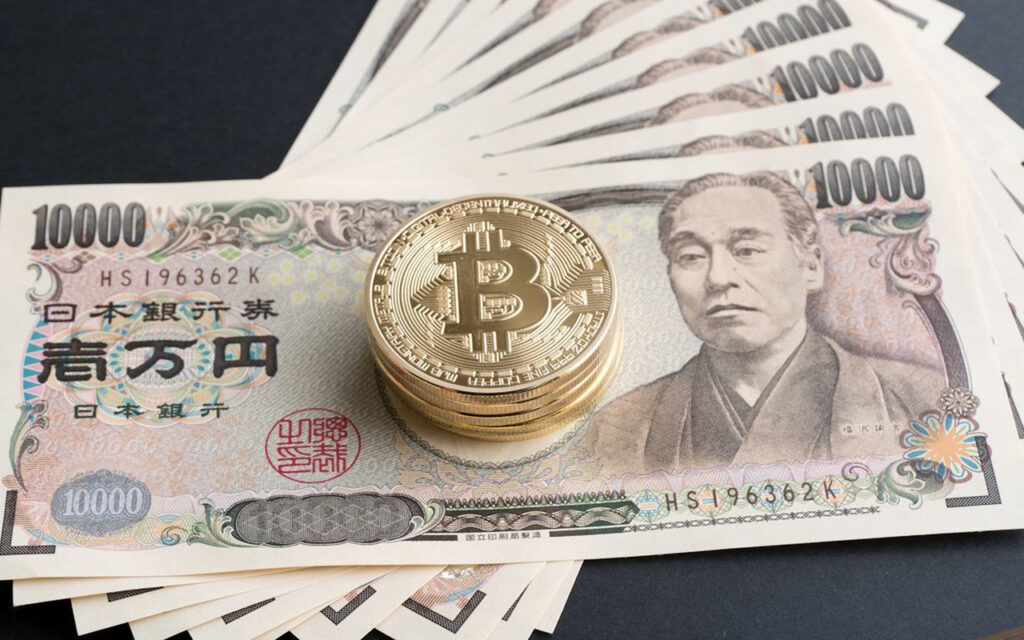Social media enthusiasts urge the Japanese to consider Bitcoin as an alternative “sound money” with the declining value of the Yen.

The global macros continue to exhibit troubling signs, with the Japanese Yen falling to a 34-year low against the US dollar.
Moreover, the strong USD is fueling the Yen’s weakness.
The persistent inflation in the United States has compelled the Federal Reserve to maintain elevated interest rates for an extended duration beyond initial projections.
As the Japanese central bank attempts to navigate this situation, leading analysts propose Bitcoin as the country’s next significant hedge against its depreciating currency.
Bitcoin Is A Sound Money
Following the Yen’s collapse in value, the Bitcoin price against the Japanese currency surged.
However, this sparked considerable discourse on social media regarding the demise of fiat currency and the renewed optimism regarding “sound money” in Bitcoin.
Private players in Japan have already begun to embrace Bitcoin.
Metaplanet, a publicly traded Japanese company, acquired Bitcoins valued at $6.25 million earlier this week.
Even prominent Bitcoin advocates, such as Michael Saylor, have expressed that “Bitcoin is Japan’s only hope.”
The users once again validated what Michael Saylor, a proponent of Bitcoin maximizing its supply, refers to as “Bitcoin’s superior design.”
They acknowledged Satoshi Nakamoto’s framework, establishing an upper limit of 21 million BTC.
BTC’s blockchain protocol incorporates this limit, rendering it immutable.
By limiting the issuance of newly disseminated tokens, the system effectively mitigates inflation through halving events.
How Japanese Yen Fluctuations Can Impact Crypto?
In contrast to the U.S. dollar, the Japanese Yen (JPY) fell an additional 1.3% throughout the day, the most substantial movement for a major currency since it reached its lowest level since 1990.
The decline in value ensued after the Bank of Japan’s (BOJ) determination to sustain interest rates near zero while failing to convey significant apprehension regarding the depreciation of the Yen.
Conversely, Japanese financial institutions aim to gain exposure to stablecoins secured by deposits.
While the devaluation of the Yen has not yet impacted cryptocurrency markets, this could change if the BOJ intervenes to support the currency.
This intervention may entail the Bank of Japan divesting U.S. dollar assets, particularly U.S. Treasuries, to acquire Yen.
The outcome could be a depreciation of the dollar, which, in theory, could positively impact the prices of cryptocurrencies.
On the contrary, intervention could occur if policymakers in the United States decide to infuse liquidity into the markets, thereby bolstering the position of riskier assets like cryptocurrencies.
